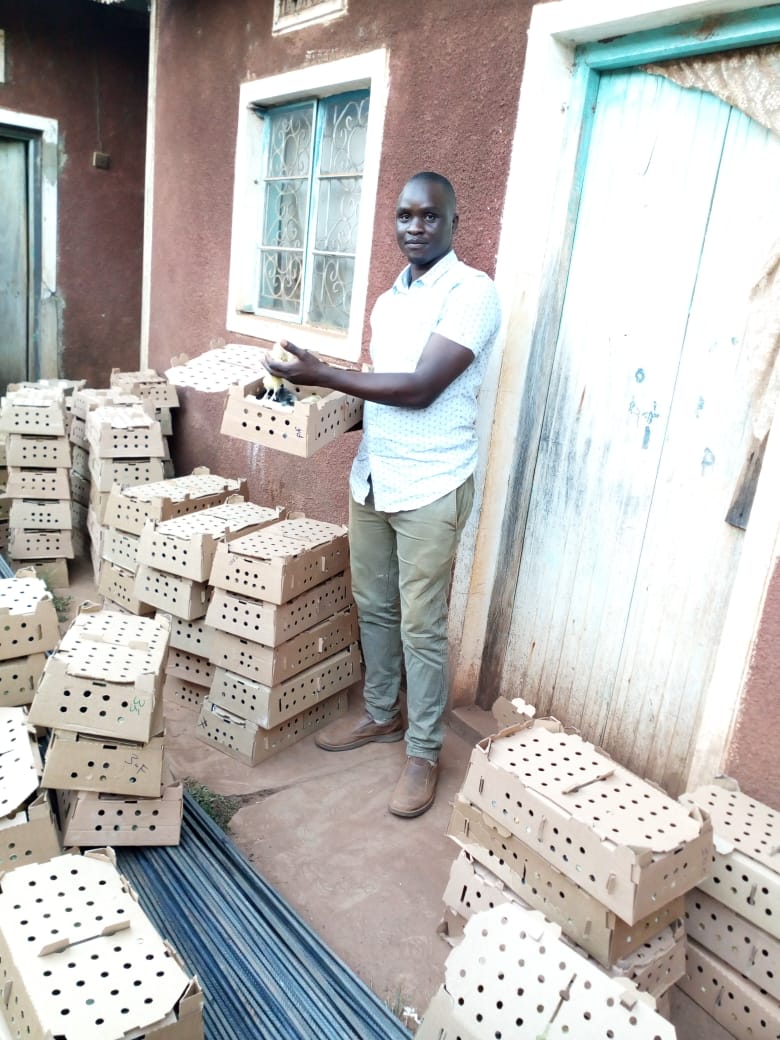Amos Nyambane invested four years of his life training to be a Procurement Officer. In 2016, he graduated with a Bachelor’s degree from Dedan Kimathi University hoping to get a white collar job but couldn’t find one. Instead, he is earning more income supplying at least 18,000 chicks to different farmers across Kenya.
Nyambane earns between Sh250,000 to Sh300,000 a week from the business.
From his Kisii farm, Nyambane supplies Kuroiler, Rainbow Rooster and Kenbro one day old chicks at between Sh75 to Sh85 to farmers driven by high demand of chicken in the market.
According to a 2017 study on the broiler meat system in Nairobi published by ScienceDirect journal, consumption of poultry meat in Kenya is predicted to increase from 54.8 thousand metric tonnes in 2000 to 164.6 thousand in 2030, and from six to 30.5 thousand metric tonnes in the capital Nairobi.
“After graduating in 2016, I went to Nairobi and applied for over 100 hundred jobs but I couldn’t find one,” said Nyambane.
He applied for these jobs online and physically dropping application letters to various companies. In this, he only managed to secure and attend six interviews over a period of five months but failed to get a job.
His eye opener however, came when browsing through the internet he saw stories of an established poultry farmer Caleb Karuga who inspired him to start his own chicken farm, Mkulima Sharp, a decision he does not regret to date.
Related content
Kiambu housewife excels in poultry farming
Global company launches initiative to help smallholders through poultry value chain
Bidco introduces poultry feeds that reduce maturity period in kienyeji chicken, increasing yields

Amos Nyambane loading chicks into boxes ready for delivery. Farmbiz Africa
“At first my parents were not of the idea of me venturing into farming, they could not believe how a learned person could risk on farming instead of working in a big office in the city,” said Nyambane.
Nyambane began small by purchasing 40 local traditional chickens within a period of five months at an average of Sh200 each using savings from manual jobs. In March 2017, he sold all of them at an average of Sh300 each to a broker as he was not yet aware of how the market value chain works.
“After selling the indigenous chicken, I decided to move into the improved kienyeji by acquiring 150 kuroiler breed at Sh50 each from a hatchery in Homa Bay,” he said.
He feeds the chicken on kales which he has planted on a two acre leased piece of land in Kisii at Sh4,500. He also feeds them on three week old Napier grass planted on the same farm.
In 2017, without serious consideration, Nyambane opened an online facebook page, Mkulima Sharp to advertise his products; little did he know that he would get orders from friends and prospective poultry farmers.
This culminated into a business where he would supply farmers in Nairobi, Mombasa, Eldoret and Kisumu among other towns with one day old chicks. Since his farm cannot meet the demand, he sources these chicks from the hatchery in Homa Bay and at least 14,000 from Kampala, Uganda on a weekly basis for direct delivery to clients.
He has employed three permanent employees who help him take care and deliver the chicks to farmers.
“We supply the chicks on Wednesday, Thursday and Friday of every week, in this we advise clients to pay affront before delivery,” said Nyambane.
“My advice to young people out there is for them to know that this world is full of opportunities, identify what you are best in and start doing it with confidence,” he said.
Anyone who wishes to attend trainings at their farm in kisii, can reach Mkulima Sharp on 0704-441-628 or 0738-151-161.
















Comments powered by CComment